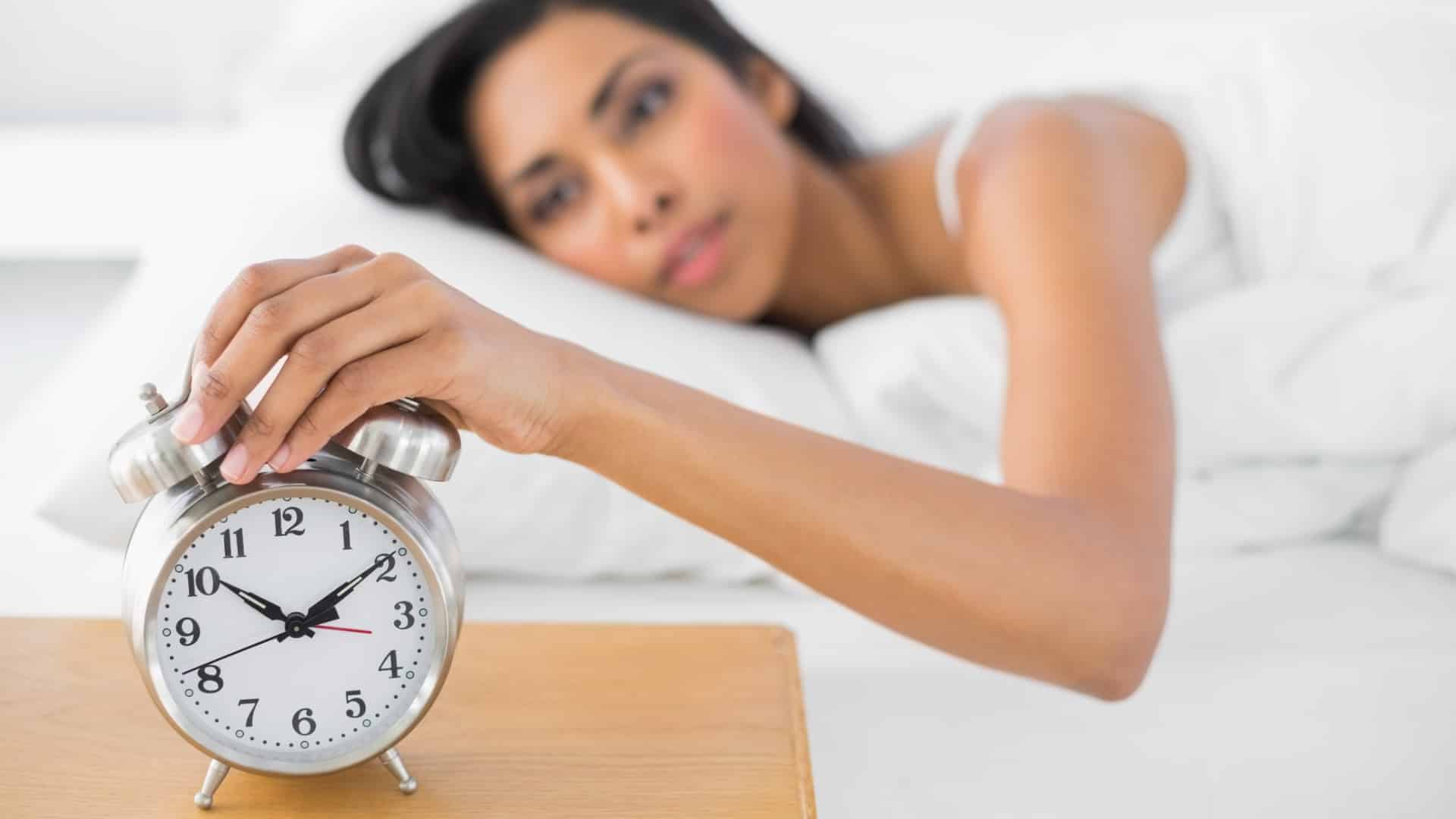For decades, the mantra of “8 hours of sleep” has been drilled into our collective psyche. From medical professionals to wellness gurus, the message is loud and clear: if you want to be at your best, you need 8 solid hours of shut-eye. But what if this “golden rule” isn’t as universal as we’ve been led to believe? What if our individual sleep needs are far more nuanced, dictated by a range of biological, age-related, and lifestyle factors? It’s a thought-provoking question that challenges a deeply ingrained belief, and the answer might surprise you.
This article aims to pull back the curtain on the sacred 8-hour sleep rule. We’ll dive into the origins of this widely accepted recommendation and scrutinize its one-size-fits-all approach. By examining the science behind sleep cycles, the role of environment, and how sleep durations can impact us differently, we’ll shed new light on what truly constitutes a restorative night’s rest. You’ll discover that sleep, like many aspects of well-being, isn’t a matter of strict rules but of adaptable guidelines.
So, are you ready to challenge the conventional wisdom that has shaped your sleep habits for years? Prepare yourself for an enlightening journey that may transform your nights and energize your days. Buckle up; you’re about to get a real wake-up call!

The Origin of The 8-Hour Sleep Rule
The concept of the 8-hour sleep rule has been deeply ingrained in our society for generations, but how many of us have stopped to question its origins? The principle actually dates back to the early years of the Industrial Revolution, when factory whistles and mechanical looms dictated the pace of daily life. The 8-hour rule emerged as a standardized guideline for the new industrial workforce, aiming to allocate the 24 hours of the day into three neat, 8-hour blocks dedicated to work, leisure, and rest, respectively. Initially, this division seemed logical and efficient, leading to widespread adoption.
The rule later gained scientific backing, as numerous studies appeared to validate the 8-hour sleep duration as optimal for cognitive function and physical well-being. This helped cement the rule in popular culture and medical advice, making it the go-to recommendation for generations to come. However, it’s crucial to understand that this 8-hour rule served a specific societal and economic context. It offered a simplified framework that was easy to digest and implement, making it appealing to a wide audience. Yet, the rule overlooked the complexities and variances of individual sleep needs and lifestyles, presenting itself as a one-size-fits-all solution, which we now know is far from the truth.
The question we should be asking ourselves is not whether eight hours is the right amount of sleep, but whether this long-standing rule is truly serving our individual needs and modern lifestyles.

Variability Among Individuals
One of the most glaring issues with the ubiquitous 8-hour sleep rule is its disregard for the natural variability among individuals. Not all bodies are created equal, and thus, it’s impractical to expect that everyone would require the exact same amount of sleep. Various factors, including age, activity level, and even genetics, contribute to how much sleep one person may need compared to another.
For instance, while an adult might feel refreshed with seven hours of sleep, a teenager could require up to nine hours to function optimally. Even within the same age group, there are outliers who claim to function exceptionally well on much less or much more sleep than the standard eight hours. High-profile examples of people like Elon Musk or Margaret Thatcher, who purportedly slept for significantly fewer hours, can distort the public perception of what’s “normal,” but it’s crucial to remember that they represent a tiny fraction of the population.
Biological factors also play a significant role. Some individuals have a genetic predisposition that enables them to function efficiently on less sleep, while others may possess genes that make them more susceptible to the negative impacts of sleep loss. Hence, sticking strictly to the 8-hour rule can lead to unnecessary stress and worry for those who naturally fall outside this range.
Understanding the variability among individuals is the first step in dismantling the notion that one size fits all when it comes to sleep. It paves the way for a more nuanced approach to understanding our sleep needs.

Sleep Cycles & Phases
We often think of sleep as a single, monolithic state, when in reality, it’s a highly complex process that can be broken down into several phases. These phases make up a sleep cycle, which lasts approximately 90 minutes. The cycle consists of four key stages: light sleep, deep sleep, REM (Rapid Eye Movement) sleep, and the transitions between these stages. Understanding these different phases and cycles is essential for grasping why eight hours might not be the magical number for everyone.
In light sleep and deep sleep, your body repairs tissues, builds bone and muscle, and refreshes the immune system. The REM phase is crucial for memory consolidation and emotional regulation. While the initial cycles of the night have longer deep sleep phases, as the night progresses, REM sleep periods increase in length. This variability throughout the night implies that simply counting hours may not provide a full picture of sleep quality.
Moreover, these cycles are not static; they can be influenced by factors such as stress, diet, and physical activity. Some people may naturally spend more time in REM sleep, which is often considered the most restorative phase. Others may require longer periods of deep sleep for physical recovery. These individual needs can make the standard 8-hour recommendation irrelevant or even counterproductive for some people.
By focusing solely on the 8-hour guideline, we risk ignoring the complexity and individuality of our sleep cycles. As more research is conducted in this area, it’s becoming increasingly evident that the key to good sleep lies in understanding these cycles and phases, not just the total duration of sleep.

The Role of Environment
While there’s a lot of talk about the number of hours you should sleep, not enough attention is given to the environment in which you sleep. A conducive sleeping environment can significantly influence the quality and even the quantity of your rest. Factors such as temperature, noise, and lighting all come into play and can be as essential as the mattress and pillows you choose.
For instance, a cool room temperature is generally considered ideal for promoting better sleep. In contrast, a hot and stuffy environment may make it more difficult to fall asleep and stay asleep throughout the night. Similarly, a completely dark room fosters the production of melatonin, the hormone that controls your sleep-wake cycle. Even the smallest electronic light or streetlamp glow can interfere with this process.
Noise is another disruptive element. Whether it’s a snoring partner or loud neighbors, these external disturbances can dramatically affect sleep quality. Many people invest in soundproofing, white noise machines, or earplugs to create a serene sleep environment. Thus, it’s not just about the length of sleep; it’s about making the environment work to your advantage to achieve high-quality rest.
The point is, focusing solely on hitting that 8-hour mark may lead you to overlook other significant aspects that contribute to restful sleep. Your environment can make or break your sleep experience, transcending the limitations of time-centric sleep guidelines.

Effects of Different Sleep Durations
The conventional wisdom that eight hours of sleep is universally ideal has been increasingly scrutinized. In truth, the effects of sleep can significantly vary depending on its duration, and different lengths of sleep can produce quite different outcomes. We tend to think of “more” as “better” when it comes to sleep, but that’s not always the case. Both excessive sleep and insufficient sleep can lead to a range of consequences that affect your overall well-being.
Sleeping for too long, often termed “oversleeping,” can leave you feeling surprisingly fatigued and lethargic. While it may seem counterintuitive, extended sleep can confuse your body’s internal clock, creating a sense of jet lag. There are also potential cognitive repercussions, as some studies have shown that prolonged periods of sleep can affect mental sharpness.
On the flip side, sleeping less than the often-recommended eight hours doesn’t necessarily spell disaster. Some people, often referred to as “short sleepers,” function exceptionally well on as little as 5 to 6 hours of sleep per night. They wake up refreshed, maintain high levels of focus and energy throughout the day, and don’t exhibit signs of poor sleep.
It’s essential to note that the quality of your sleep can sometimes outweigh the quantity. A focused, undisturbed 6-hour sleep might leave you feeling more refreshed than a fitful 8-hour slumber. The key takeaway is that different sleep durations can work for different people, and it may be time to rethink the one-size-fits-all 8-hour rule.

Cultural Variations In Sleep Norms
The concept of an 8-hour sleep cycle is largely a Western construct, and you’ll find that sleep norms can differ quite substantially from culture to culture. In some parts of the world, the typical sleep duration and timing can vary greatly from the well-entrenched Western ideal of eight consecutive hours. This variation isn’t just a minor cultural footnote; it’s a major indicator that sleep preferences and needs can be heavily influenced by societal norms and expectations.
For example, in many Mediterranean countries, the practice of siestas—midday naps—is not only accepted but culturally encouraged. This breaks the sleep into different phases and challenges the notion that a solid 8-hour stretch is necessary. In some Asian cultures, short naps during the workday are seen as a sign of diligence rather than laziness.
Likewise, in certain African and South American communities, segmented sleep is the norm, where people wake for a period in the middle of the night before returning to sleep. This is thought to be more in line with natural human sleep patterns and circadian rhythms. These cultural variations offer valuable insights into the malleability of sleep norms and raise important questions about the universality of the 8-hour rule.
Recognizing the cultural variations in sleep norms challenges the idea that there is a single “correct” way to sleep. It offers a more inclusive and nuanced understanding of sleep, acknowledging that optimal sleep might look different for everyone.

Signs You Need To Rethink Your Sleep Schedule
If you find yourself consistently fatigued despite sticking to the 8-hour sleep rule, it might be time to reconsider your sleep schedule. While the general notion that more sleep equates to better functioning might hold true for some, it’s not a one-size-fits-all scenario. You may notice cognitive sluggishness, emotional volatility, or a decrease in physical performance—all of which could be indications that your current sleep schedule isn’t working for you.
Some people might find themselves unusually alert late into the evening, while others may experience their peak productivity in the early morning. These tendencies, often tied to your natural circadian rhythm, should not be ignored. Likewise, difficulty falling asleep or waking up, even with adequate time in bed, could indicate that you need to revisit your sleep habits.
Moreover, the quality of your sleep is just as important as its duration. If you’re waking up multiple times throughout the night or experiencing sleep that is not restorative, it’s a sign that adjustments are needed. Keep a sleep diary, consult professionals, or consider sleep trackers as tools to reevaluate your sleep regimen.
Conclusion
Sleep is far more intricate and individualized than the often-cited 8-hour rule would have us believe. From the origins of this rule to the variability among individuals, sleep cycles, environmental factors, and cultural norms, it’s evident that the realm of sleep is vast and complex. This article challenges the preconceived notion of an “ideal” sleep duration, encouraging you to take a more personalized approach to your sleep schedule.
Our exploration into the different facets of sleep, like the role of environment and the impact of cultural variations, not only provides a fuller understanding of sleep but also offers a liberating perspective. Knowing that there’s no one-size-fits-all model can empower you to find the sleep pattern that truly works for you. This is not just about discarding old norms; it’s about adopting a more flexible and personalized approach that aligns with your individual needs and lifestyle. So, the next time you find yourself fixating on the clock, remember: it’s the quality and personal suitability of your sleep that truly counts.















